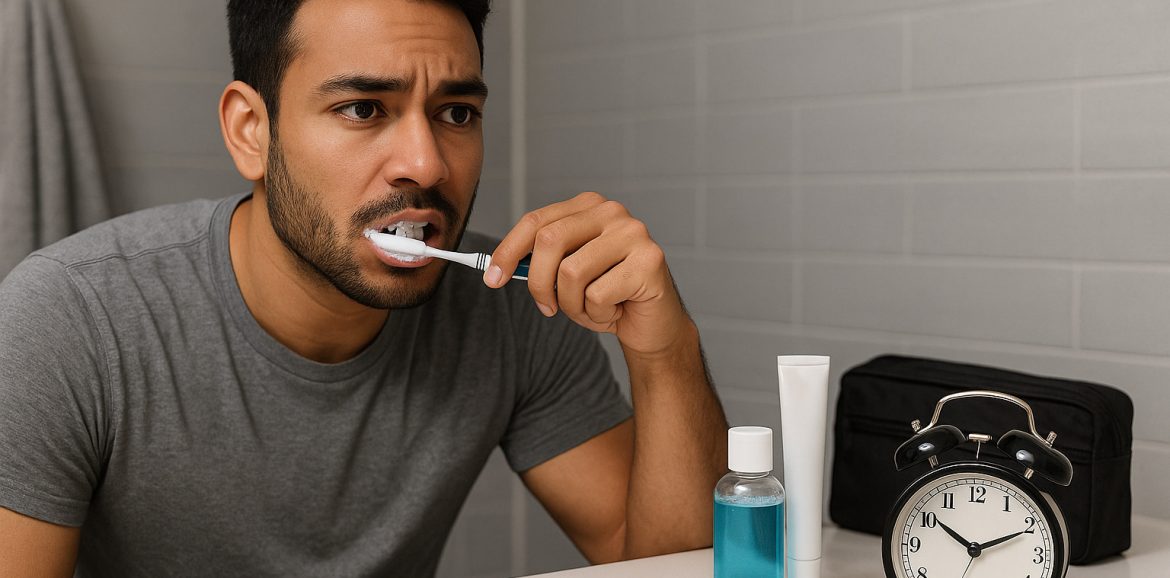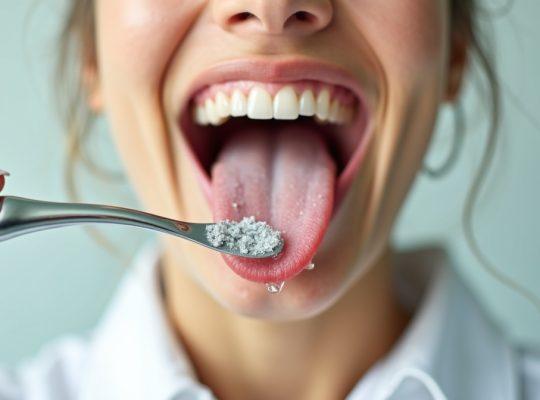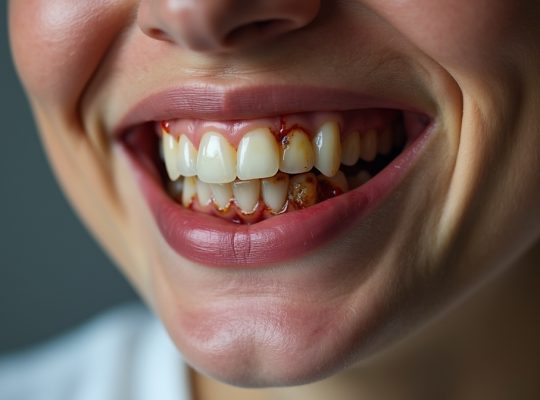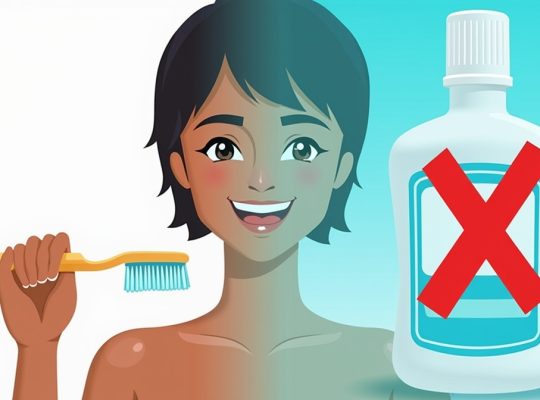Shift work and irregular hours are known to disrupt sleep cycles, hormone regulation, and dietary patterns—but oral health often gets pushed aside. Whether you’re working graveyard shifts, flipping between nights and days, or simply functioning best under the moonlight, your dental routine may be taking the hit.
Night owls and shift workers face specific challenges: dry mouth from long hours, inconsistent brushing routines, sugar-heavy snacks for energy, and skipped dental appointments. This article provides direct, practical strategies tailored to these realities.
1. Anchor Your Routine—Not the Clock
Brushing at 7 a.m. and 7 p.m. works for 9-to-5 schedules, but not for night shifts. Anchor brushing and flossing to wake-up and wind-down periods, not traditional morning and night. This ensures your teeth are cleaned after sleep and before the longest rest period of the day.
Example Routine for Night Shift:
- Wake up (5 p.m.) → Brush + Floss
- Meal break (11 p.m.) → Rinse mouth with water or alcohol-free mouthwash
- End of shift (8 a.m.) → Brush + Floss, then sleep
Consistency matters more than the time on the clock.
2. Hydration Prevents Dry Mouth
Mouth dryness increases the risk of cavities and bad breath. Long hours under artificial lighting or in temperature-controlled environments often mean people drink less water than needed.
- Sip water regularly
- Avoid frequent coffee, tea, or energy drinks—they’re dehydrating
- Use sugar-free gum or lozenges to stimulate saliva production
- Carry a refillable bottle and set drink reminders if needed
Dry mouth is more than discomfort—it changes the pH balance and helps harmful bacteria thrive.
3. Snack Smarter Through the Night
Late-night cravings can sabotage dental health fast. High-sugar snacks fuel energy slumps but leave sugar residue between teeth for hours. Swap common snacks with tooth-friendlier alternatives:
Instead of:
- Candy → Carrot sticks
- Granola bars → Cheese slices or nuts
- Energy drinks → Coconut water or water with electrolytes
Sticky and processed carbs cling to enamel longer, feeding bacteria throughout the shift. If you must indulge, rinse with water immediately after.
4. Pack a Dental Kit to Work
Brushing once a day isn’t enough—especially if you’re eating during long shifts. Keep a small oral care kit in your work bag.
Must-Haves:
- Travel toothbrush and fluoride toothpaste
- Floss or floss picks
- Mouthwash (alcohol-free)
- Tongue scraper (optional but effective)
Brushing during a break—even just once per shift—helps reduce acid buildup and keeps your mouth fresher during long hours.
5. Adjust Your Sleep and Wake Cues
Circadian rhythm shifts can mess with immune response, healing, and even gum health. Teeth grinding, also known as bruxism, is more common in those with irregular sleep cycles.
To reduce nighttime clenching:
- Avoid caffeine within 6 hours of sleep
- Use blackout curtains or eye masks
- Avoid screens 30 minutes before rest
- Wear a nightguard if prescribed by your dentist
- Set a consistent sleep time using tools like an online alarm clock to maintain rhythm
Oral health doesn’t reset with daylight. Sleep deprivation and grinding go hand in hand, leading to tooth wear and jaw tension.
6. Don’t Skip Dental Appointments—Book Smart
Late schedules often clash with standard dental office hours. Many shift workers delay check-ups for this reason. But skipping routine cleanings can set back your oral health fast.
What to do:
- Find practices with extended or weekend hours
- Book appointments right after your shift ends or before you sleep
- If necessary, use leave time proactively—oral health costs more to fix than to maintain
Tell your dental provider about your schedule. They may tailor advice or suggest specific treatment intervals based on your routine.
7. Watch for These Warning Signs
Shift work increases risk of neglect. Keep an eye out for early signs that you need to step up your dental care:
- Bleeding gums
- Chronic bad breath
- Tooth sensitivity
- White or yellow patches on the tongue
- Increased plaque buildup between teeth
If these show up, don’t wait. Schedule an exam and revise your brushing routine. Early intervention is far easier—and less expensive—than reactive treatment.
8. Set Triggers for Daily Habits
Inconsistent environments break habits fast. Use triggers to reinforce your routine, especially during chaotic workweeks.
Examples:
- Brush right after your post-shift shower
- Floss while listening to a podcast or audio journal
- Rinse your mouth right before logging into work systems
- Keep your dental kit on top of your meal bag as a visual reminder
Small rituals done regularly have more impact than perfect routines done inconsistently.
9. Don’t Neglect Your Gums
Gum health often takes a backseat. Night workers might brush, but flossing and gum care are skipped. Periodontal issues creep in silently.
What helps:
- Daily flossing, even if it’s only once
- Soft-bristle toothbrush and gentle technique
- Mouthwash with antimicrobial ingredients
- Vitamin C and calcium-rich foods in your shift meals
Healthy gums are the foundation of long-term oral stability. And they show the fastest response to better habits.
Shift work may throw off your internal clock, but your oral care can stay grounded. Adapt your hygiene to your rhythm—not someone else’s. One adjustment at a time keeps your teeth and gums strong no matter the hour.






